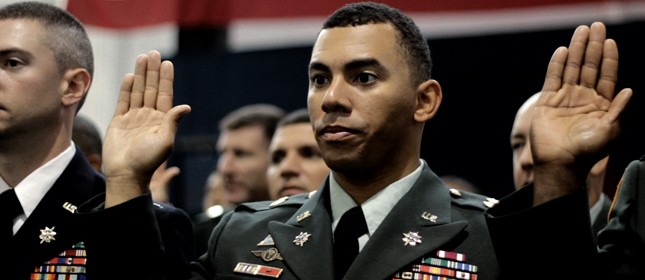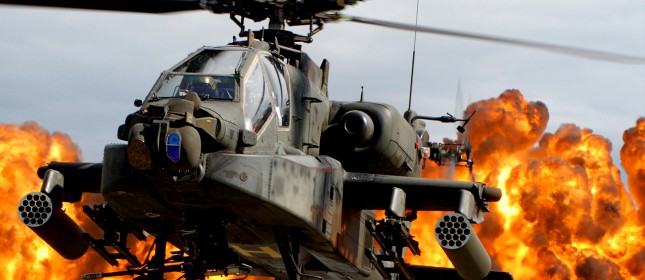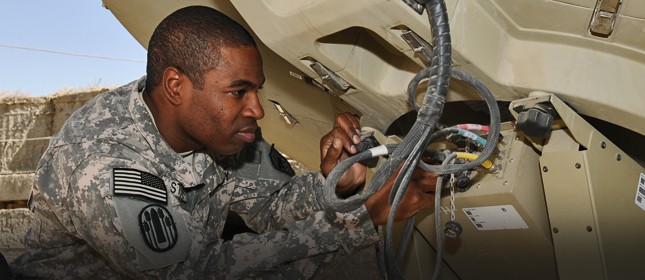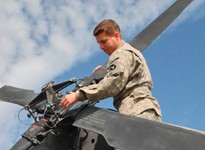- Careers
- > Warrant Officer


Become an officer and specialist in your field.

Earn your wings as a National Guard aviator.

Be a technical expert, instructor and advisor.

Hone your skills while you move ahead.



Warrant Officers—Leaders and Experts
Do you want to become an officer, but continue to be a specialist in your field? As a warrant officer, you can be both an officer and subject matter expert rolled into one.
While basic branch officers assume the Guard’s general management roles, warrant officers are able to be leaders and instructors within their specific career field, and advise superiors in matters affecting their specialty. As a technical warrant officer, you’ll be both a technical and tactical expert—the best of both worlds.
And if you feel flying is in your future, the aviation warrant officer career path may be the best way to earn your wings and become a Guard pilot.
Is the warrant officer career path right for you? It might be, if:
- You want to promote your National Guard career
- You want to be the “best of the best”
- You want to become an expert within your field
- You want to use your knowledge to train Soldiers and advise officers
- You want to be recognized as the “go-to” person for your technical specialty
What’s the difference between a branch officer and a warrant officer?
The National Guard always needs strong officers to organize “the big picture” and oversee the Guard’s important missions. But it’s also critical to have officer-level leaders to deal with details, execute and administer plans, and be available to both officers and enlisted personnel for advice and direction. Warrant officers are those hands-on leaders. Here are a few differences between the two kinds of officers:
If this sounds like the right direction for your Guard career, learn more about technical warrant officer careers or find out more about the aviation warrant officer career path.
Each state and territory has different selection requirements. Your local Warrant Officer Strength Manager will have the most current information.
Your total enlistment period will be eight years, but you can serve as little as three or six years, and spend the remainder in IRR (Individual Ready Reserve).
Learn moreAbsolutely. Your Guard service is only part time—just one weekend per month, and one two-week period each year.
See how the Guard helps with school.Recruits need to meet certain standards of height, weight, age, fitness and education in order to enlist.
Learn about the Guard's eligibility requirements.Yes. Guard members can be mobilized to protect and defend America in battle domestically or overseas.
Learn more about about training.MEPS stands for Military Entrance Processing Station, METS stands for Military Entrance Testing Site.
Learn moreThe Guard is a military branch that serves both state and federal governments, at home and overseas.
Find out more about the Guard.Guard pay is based on your rank and the number of years you've served, along with incentives like hazardous-duty pay.
Contact a representative to learn more.Your pay depends on a few different factors, but you won't make less than $183 for every weekend you drill.
Find out more about Guard pay.Different states may offer commissioning bonuses for critical skill positions. Please check with your local Guard representative for current bonus information.
Learn more about becoming an officer.Yes, you will be paid for every day you work.
Find out about Annual Training pay.There are different ways to become an officer. If you’re heading to college, the ROTC program is the way to go.
View how to become an officer.The training period varies for each job.
Learn moreFor certain career specialties, particularly medical professions, the Guard will reimburse student loans.
Contact a Guard representative.Find jobs in your area on our Job Board.
Learn moreIn two major ways: getting promotions and activating retirement benefits.
Learn more from a Guard representative.If you've completed Army or Marine Corps Basic Training, you won't need to repeat BCT. Most other prior service personnel will need to attend BCT (except USAF and USN Special Operations personnel). Your recruiter has details.
Talk to a Guard representative.Yes, provided you can complete 20 years of total military service by age 62.
Learn more about retirement benefits.As a National Guard Soldier, you get good pay and great benefits, and continue building toward a military retirement—while serving your country in a part-time status.
Learn moreYou are eligible for this benefit only once in your career. Once it has ended, it cannot be reinstated, even with a new enlistment contract.
Learn more.Your Chapter 1606 GI Bill benefit is suspended while you are AGR. You may need to extend your enlistment to have it reinstated once you return as a traditional drilling Soldier.
Learn more.Eligibility for Chapter 1607 is based on Title 10 Active Duty periods. The Border Mission is Title 32 and not considered a mobilization eligible for Chapter 1607.
Learn more.If you are released from Active Duty prior to completing 90 days due to an illness or injury in the line of duty, you will receive Chapter 1607 benefits at a 40 percent rate.
Learn more.You cannot receive payment from more than one benefit program at a time.
Learn more.Your estimated total for the first year.
*DetailsPlease understand that these calculations are only estimates and that a recruiter will have the most up-to-date information about benefits.
Because of the broad range of pay options, the Pay Calculator does not apply to Medical Professional Officers.
[X] CloseView all News
Connect with the National Guard
National Guard | Privacy Policy | Tech Support | Hide Site Map [-] | View Full Site Map
© 2012 - United States Army National Guard








